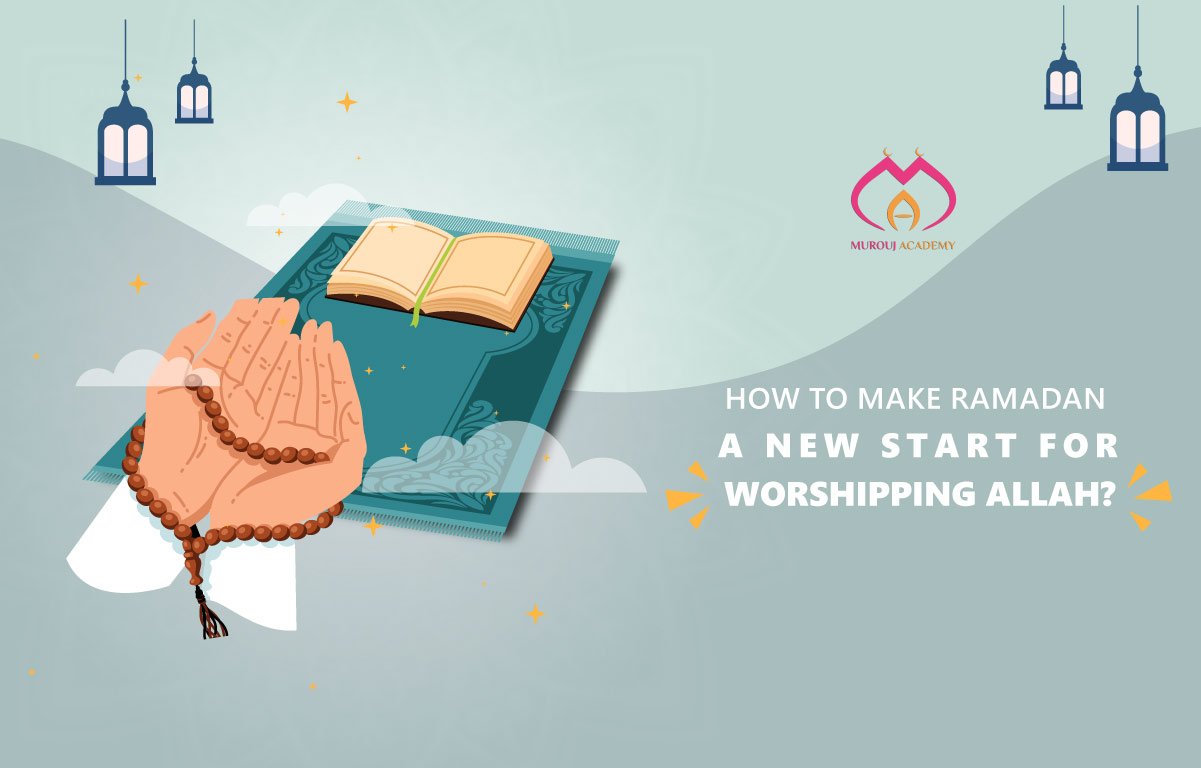In Ramadan, we find many people trying to give up all the sins that they have been doing throughout the year and trying to adhere to obedience to God and performing the duties imposed by God Almighty on His servants. This may sound cliche to some, but in fact, Ramadan is a wonderful opportunity for a new beginning in the life of a Muslim. What you may start in Ramadan may be the reason for God’s satisfaction with you and the reason for your salvation from Hell. In this article, we discuss together some of the new beginnings that we can decide on in Ramadan and persevere in them after that, taking advantage of the spirituality of this holy month.
Wear the hijab properly
Some women go down to Tarawih prayers and night prayers during Ramadan, and some of them are not veiled at all when they go out normally, but out of respect for the month or even to perform the prayers, they wear the veil during the month of Ramadan. We tell you that this is an opportunity to keep your hijab on for the rest of the days. You know that the Lord of Ramadan is the Lord of the rest of the months. Covering the body is an obligation imposed by God Almighty on Muslim women.
Let’s just remember that the “hijab” in Islam has characteristics, as it is not just a cover for the hair, but rather a cover for the body except for the face and hands, in a way that does not describe the shape of the body or reveal what is under the clothes.
Allah says (interpretation of the meaning):
“And tell the believing women to lower their gaze (from looking at forbidden things), and protect their private parts (from illegal sexual acts) and not to show off their adornment except only that which is apparent (like both eyes for necessity to see the way, or outer palms of hands or one eye or dress like veil, gloves, headcover, apron), and to draw their veils all over Juyubihinna (i.e. their bodies, faces, necks and bosoms) and not to reveal their adornment except to their husbands, or their fathers, or their husband’s fathers, or their sons, or their husband’s sons, or their brothers or their brother’s sons, or their sister’s sons, or their (Muslim) women (i.e. their sisters in Islam), or the (female) slaves whom their right hands possess, or old male servants who lack vigour, or small children who have no sense of feminine sex. And let them not stamp their feet so as to reveal what they hide of their adornment. And all of you beg Allah to forgive you all, O believers, that you may be successful.” [al-Nur 24:31]
Allah says (interpretation of the meaning):
“O Prophet! Tell your wives and your daughters and the women of the believers to draw their cloaks (veils) all over their bodies (i.e. screen themselves completely except the eyes or one eye to see the way). That will be better, that they should be known (as free respectable women) so as not to be annoyed. And Allah is Ever Oft-Forgiving, Most Merciful.” [al-Ahzab 33:59]
Preserving the obligatory prayers
Prayer is the second pillar of Islam after performing the Shahada, and it is the first thing a Muslim will be held accountable for on the Day of Resurrection, according to the words of the Messenger, peace be upon him. In the opinion of scholars, the one who abandons prayer is either an infidel or a sinner or has a severe consequence in the Hereafter. Therefore, we cannot be negligent in performing prayers, and each prayer has a specific time. God Almighty said (as in the interpretation): When ye pass (Congregational) prayers, celebrate Allah’s praises, standing, sitting down, or lying down on your sides; but when ye are free from danger, set up Regular Prayers: For such prayers are enjoined on believers at stated times. You can take advantage of the month of Ramadan to make prayer a regular habit in your day. You need to make some effort to get used to the prayers, but the act of prayer itself is not burdensome in anything and does not take time, only building the habit is what takes time and this is what makes us always point out the importance of urging our children to pray from a young age and as the Messenger, peace be upon him, commanded us.
Leave forbidden relationships
Ramadan is a wonderful opportunity to dissolve your inappropriate relationship, whatever name you call it. Islam only recognizes marriage between a Muslim man and a Muslim woman (or between a Muslim and a woman from the People of the Book, this is not our topic) and this is what allows them to communicate and have intercourse. As for other than that, it is forbidden that a Muslim should protect himself from falling into. Immediately cut off any forbidden relationship and cut off all ways of communication during the month of Ramadan, and you will be able, with God’s help, not to return to such relationships.
Taking care of your parents
Paying attention to the affairs of the father and mother is one of the things that Islam urged them to do, and honoring parents came immediately after Tawhid.
God Almighty said (as in the interpretation):
| “Thy Lord hath decreed that ye worship none but Him, and that ye be kind to parents. Whether one or both of them attain old age in thy life, say not to them a word of contempt, nor repel them, but address them in terms of honour”. Do not let yourself lead to evil convince you that there is no point in trying to be a good Muslim, when you seek the help of God Almighty, you will be able to commit obedience and leave everything forbidden. May Allah accept from us and you! |





